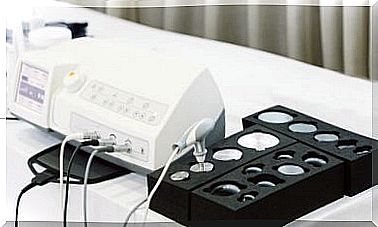5 Little Known Symptoms Of Diabetes
There are some little-known symptoms of diabetes that can help determine when it is a good idea to see your doctor for a checkup, outside of the usual regular check-ups.
The National Library of Medicine of the United States points out that diabetes is a disease that occurs when the body is unable to regulate blood glucose levels.
Not all people who are diagnosed with diabetes have the usual symptoms , including, according to the National Institute of Diabetes and Digestive and Kidney Diseases: thirst, numbness in the hands or feet, unexplained weight loss and the need to go to the bathroom.
Little known symptoms of diabetes
There are some symptoms that, although in principle they are not associated with diabetes, they can indicate its presence.
Of course, if you have one or more of these symptoms, it is best to go to the doctor. Only a professional can determine whether it is indeed diabetes or another health problem.
Skin irritation
One of those Little known symptoms of diabetes appear c hen blood glucose is above healthy values. In these cases, the skin can become dry and itchy.
Your hands, arms, legs, and feet may itch . Therefore, if you notice that your skin is irritated or itchy, you should analyze if it can be caused by the weather. If not, see your doctor to determine if you need a blood glucose test.
A study by Diabetology & Metabolic Syndrome indicates that, although the data is not conclusive, researchers have determined that diabetes can affect the skin and cause ulcerations, dryness and all kinds of irritations.
Dandruff or dry scalp

Although we have not found specific research in this regard, an investigation from 2005 published in the Revista de Saúde Pública suggested that the poor metabolic control of diabetes could lead to the appearance of skin lesions caused by infections.
This It would provide the favorable conditions for the increase of the Pityrosporum fungus, which causes dandruff. As soon as the microorganism settles in, it would use the oil on the scalp as food and would tend to spread rapidly within a few days.
Snoring: one of the little known symptoms of diabetes
A clinical trial carried out in China in 2017 evaluated the relationship between snoring and the presence of prediabetes. Of the 13,592 participants, nearly 31% were diagnosed with prediabetes.
The results indicated that there was a relationship between habitual snoring and the presence of altered glucose values. It is believed that, d Due to problems related to breathing disorders when sleeping, such as sleep apnea, blood sugar levels can rise.
When you sleep, you can release stress hormones that greatly raise blood sugar levels. For example, l you snoring They are caused by pauses in breathing due to the relaxation of the muscles that narrow the airways and could cause the release of stress hormones and, therefore, an increase in blood sugar.
Hearing problems
If you find that you have to increase the volume of the TV Because it is difficult for you to listen or when you have a conversation you have to tell the person to repeat what he said, notify your doctor. Various studies, such as that of Current Diabetes Reports, have shown that hearing loss could be an indicator of diabetes.
People with high blood sugar are more likely to have hearing damage than those with healthy glucose levels. This is because very high levels could damage the nerves in the inner ear.
Changes in vision

Despite not having found specific research in this regard, it is worth mentioning that some people who suffer from diabetes without knowing it have suffered a momentary improvement in their vision ; In other words, they no longer need glasses, since they could see well without them.
When this happens, the improvement is not permanent. Once glucose levels stabilize, the patient again needs to wear glasses. Check with your doctor about it.
Do you have to observe for a while or go to the doctor as soon as possible?
These symptoms are often overlooked because they are often associated with other diseases . If you are noticing these changes, added to the common symptoms, you should try to go to a specialist as soon as possible so that they can give you a proper diagnosis and treatment.
Although it can be good to observe the symptoms for a reasonable period of time, what you should not do is put off seeing the professional too much.









